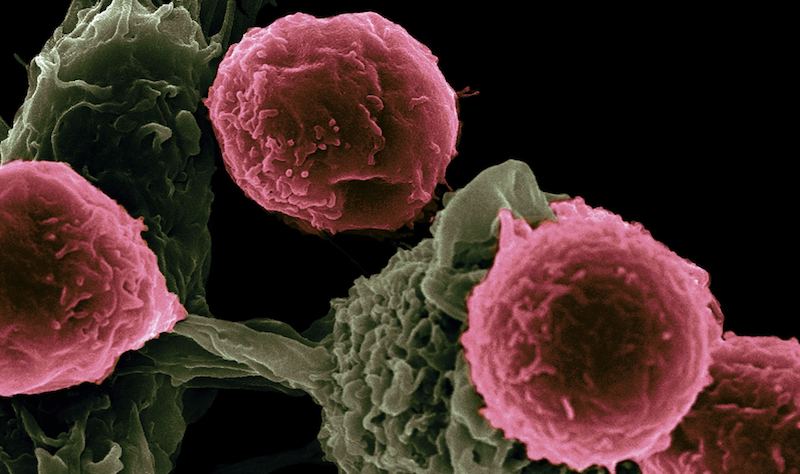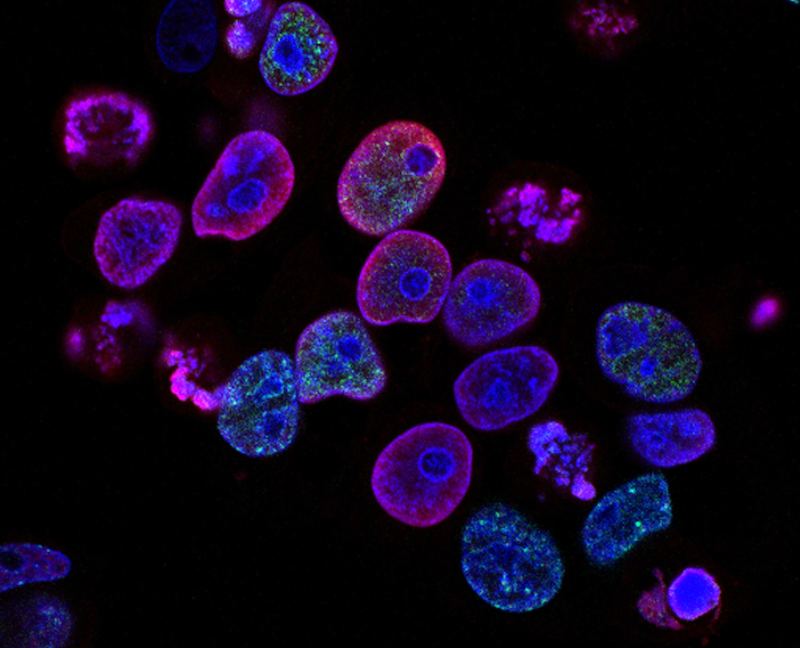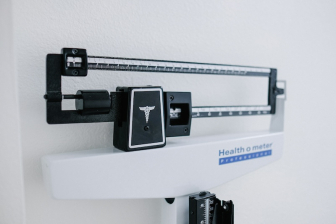What types of cancer is dostarlimab used for? The only overview you need.
Last updated: 17 October 2024

You can legally access new medicines, even if they are not approved in your country.
Learn howSince its first FDA approval in 2021, dostarlimab (commercially sold as Jemperli) has been in the media headlines a lot. Often, it's even been referred to as a "miracle drug" or "cancer cure"1,2.
Any cancer patient out there would like these headlines to be true, and we understand that. However, it's important to stay with the facts.
Below is a simple overview of the various cancer types treated with dostarlimab, as well as ongoing research in other areas.
What is dostarlimab?
Dostarlimab is the active ingredient in the medicine Jemperli. It’s a monoclonal antibody that targets the PD-1 protein on cancer cells. This prevents cancer cells from evading detection by our immune system's T cells. It helps enhance our immune system's ability to identify and kill cancer cells 3.
Dostarlimab: An approved treatment for primary advanced or recurrent endometrial cancer
Jemperli (dostarlimab) was first approved in 2021 as a second-line therapy for recurrent or advanced dMMR endometrial cancer 10. In 2023, this approval was extended to use in dMMR/MSI-H primary advanced or recurrent endometrial cancer 11.
Dostarlimab is administered with chemotherapy as a first-line treatment, and as a single agent for second-line treatment.
How successful is dostarlimab for endometrial cancer?
In the RUBY clinical trial, Jemperli (dostarlimab) was used along with chemotherapy to treat primary advanced or recurrent dMMR/MSI-H endometrial cancer. According to the reported trial results, 73.8% of patients had a partial or complete response to treatment with Jemperli and chemo. 61.3% of them continued to report this effect a year after the trial 12.
When used as a single agent in second-line treatment of advanced or recurrent dMMR/MSI-H endometrial cancer, Jemperli (dostarlimab) elicited a 45.4% response rate. 85.9% of patients still reported the effect after a year, and 54.7% still reported it after 2 years 13.
Can dostarlimab be used for colorectal cancer?
Yes, dostarlimab has the FDA's approval for use as a second-line therapy in patients with dMMR/MSI-H recurrent or advanced colorectal cancer 5. The medicine is used in cases where the cancer has advanced or not responded to initial chemotherapy treatment.
Dostarlimab's efficacy in treating advanced or recurrent dMMR/MSI-H colorectal cancer was evaluated as part of the GARNET trial. Overall response rate was reported to be 36%, with a median response duration of 30.1 months 5.
dMMR/MSI-H cancers only represent 3-5% of total colorectal cancers. However, according to Dr. Mohamedtaki Tejani of the AdventHealth Cancer Institute, they are particularly sensitive to immunotherapy 4.
Ongoing trials aim to assess the possibility of using dostarlimab even earlier in the treatment of dMMR/MSI-H rectal cancers.
Dostarlimab as a first-line treatment for dMMR/MSI-H rectal cancer
In a small phase 2 trial, 12 patients with stage 2 or 3 rectal cancer underwent 6 months of dostarlimab treatment every 3 weeks. 100% of patients showed a complete response to the treatment. During the 6 to 25-month follow-up, no disease progression or recurrence was reported. Additionally, no adverse effects of grade 3 or higher were reported 14.
If dostarlimab is approved for first-line treatment of dMMR/MSI-H rectal cancer, it could spare patients from undergoing unneeded chemotherapy. As it stands, chemotherapy is given to all stage 2 and 3 rectal cancer patients, regardless of their MMR status. Yet, research indicates that dMMR rectal cancer patients might not benefit from chemotherapy as much as pMMR patients 16. At the same time, both groups are equally vulnerable to chemotherapy's side effects.
While these findings are encouraging, they stem from just one clinical trial. It's important to interpret them with caution. Further studies are needed to validate these initial positive outcomes.


Can dostarlimab be used for stomach cancers?
Dostarlimab is currently not approved for the treatment of gastric cancer. However, patients with gastric cancer were involved in the Phase 1 GARNET study. Based on the reported results, these are the highlights:
- 45.5% of stomach cancer patients in the study had their tumor decrease in size or disappear;
- The median progression-free survival was 5.5 months;
- The median overall survival was 20.1 months 20.
Further data is needed to determine the role that dostarlimab could play in treating gastric cancer. The GERCOR Phase 2 study and similar ongoing studies aim to gather more information about dostarlimab's effectiveness in treating stomach cancers and potentially support its approval application. The expected completion date of the GERCOR study is late 2028 21.
Will dostarlimab work on lung cancer?
Dostarlimab is currently not approved for the treatment of lung cancer. However, it's being studied to evaluate its effectiveness and safety in this area.
PERLA trial: Jemperli vs Keytruda in the treatment of NSCLC
The PERLA trial compared two PD-1 inhibitors, Jemperli vs Keytruda, in the treatment of metastatic non-squamous non-small cell lung cancer (NSCLC) 6.
The results reported so far show a 46% objective response rate for dostarlimab (Jemperli) with chemotherapy, as compared to 37% in the group treated with pembrolizumab (Keytruda). Dostarlimab showed better results for both male and female patients, and for patients with or without brain metastases. However, for patients with liver metastases, pembrolizumab had a higher objective response rate (43%) compared to dostarlimab (26%) 6.
Median progression-free survival with dostarlimab was reported as 8.8 months versus 6.7 months for those treated with Keytruda 6.
COSTAR Lung trial: Dostarlimab alone or with chemotherapy in the treatment of NSCLC
COSTAR Lung trial is another ongoing clinical trial involving dostarlimab in the treatment of advanced non-squamous and squamous NSCLC. The trial focuses on patients whose cancer has progressed after prior treatment with a PD-L1 inhibitor and chemotherapy 7. The trial compares three treatments against each other:
- Cobolimab in combination with dostarlimab and docetaxel;
- Dostarlimab in combination with docetaxel;
- Docetaxel as a single agent.
The primary completion date for the COSTAR trial is set for September, 2024. The final results should be available after January, 2026 8.
Can dostarlimab be used for breast cancer?
Yes, dostarlimab has the FDA's approval for treating dMMR advanced-stage breast cancer that has progressed after previous treatment and when no other options are available 17.
However, of all breast cancers, fewer than 1% have the dMMR biomarker. Can dostarlimab be used in treating the rest of breast cancer patients? Trials are underway to establish that.
Dostarlimab in triple-negative breast cancer
The I-SPY2 study is investigating the efficacy of using dostarlimab together with oral paclitaxel and carboplatin in early triple-negative breast cancer. The reported results show a pathological complete response rate of 48% 9. According to Dr. Yeung of the University of California, San Diego, this result is lower than anticipated. More investigation is needed before using the treatment combination in clinical practice 9.
Another Phase 2 clinical trial (NADiR) is looking at the combination of dostarlimab, niraparib and radiation therapy as treatment for metastatic triple-negative breast cancer. The results of the trial are expected towards the end of 2029 18.
What other cancers can dostarlimab treat?
Immunotherapy drugs like dostarlimab aren't limited to specific tumor types. While the medicine is currently approved for treating endometrial cancer and some dMMR solid tumors, it might be applicable for more cancers in the future. Hopefully, also types of tumors beyond dMMR.
The wide variety of ongoing clinical trials involving dostarlimab vs Keytruda and other PD-1 inhibitors will provide more data on the medicine's future impact on cancer treatment.
Is Jemperli(dostarlimab) not approved or available in your country? If you and your doctor are of the opinion that these treatments might potentially benefit you, get in touch with our team of medicine access experts. We can give you personalized support and source the medicine for you.
References:
- Cancer cure finally here? New drug cures all patients 'first time in history'. Mint, 8 June 2022.
- Dostarlimab: The miracle drug for the treatment of colorectal cancer. NCBI, Accessed 17 October 2024.
- Jemperli (Dostarlimab-gxly): An unprecedented cancer trial. NCBI, Accessed 17 October 2024.
- Experimental Colorectal Cancer Drug Dostarlimab Leading to Remission. Advent Health, 01 July 2022.
- HIGHLIGHTS OF PRESCRIBING INFORMATION. GSKPro for Healthcare Professionals, Accessed 17 October 2024.
- Subgroup Analysis Shows Consistent Benefit for Dostarlimab Plus Chemo in Nonsquamous NSCLC. OncLive, 24 April 2023.
- Cobolimab with dostarlimab and docetaxel in patients with advanced non-small cell lung cancer (NSCLC): COSTAR Lung. IASLC-WCLC, Accessed 17 october 2024.
- Efficacy Comparison of Cobolimab + Dostarlimab + Docetaxel to Dostarlimab + Docetaxel to Docetaxel Alone in Participants With Advanced Non-Small Cell Lung Cancer Who Have Progressed on Prior Anti- Programmed Death-ligand 1 (PD-[L]1) Therapy and Chemotherapy (COSTAR Lung). ClinicalTrials.gov, Accessed 17 October 2024.
- Oral Paclitaxel, Carboplatin, and Dostarlimab Demonstrates Efficacy With Manageable Safety in Triple-Negative Breast Cancer. ASCO Daily News, 4 June 2023.
- FDA Approves Immunotherapy for Endometrial Cancer with Specific Biomarker. FDA, Accessed 17 October 2024.
- Jemperli (dostarlimab) plus chemotherapy approved in the US as the first new frontline treatment option in decades for dMMR/MSI-H primary advanced or recurrent endometrial cancer. GSK, 31 July 2023.
- RUBY Efficacy & Study Design | JEMPERLI (dostarlimab-gxly). Jemperli, Accessed 17 October 2024.
- GARNET Efficacy & Study Design | JEMPERLI (dostarlimab-gxly). Jemperli, Accessed 17 October 2024.
- PD-1 Blockade in Mismatch Repair–Deficient, Locally Advanced Rectal Cancer. NCBI, 5 June 2022.
- The prognostic and predictive value of mismatch repair status in patients with locally advanced rectal cancer following neoadjuvant therapy. Annals of Translational Medicine, Accessed 17 October 2024.
- Jemperli: What to Expect, Side Effects, and More. Breastcancer.org, Accessed 17 October 2024.
- Radiation, Immunotherapy and PARP Inhibitor in Triple Negative Breast Cancer (NADiR). ClinicalTrials.gov, Accessed 17 October 2024.
- Miller, Korin. What Else Can Dostarlimab Treat?, Verywell Health, 24 June 2022.





